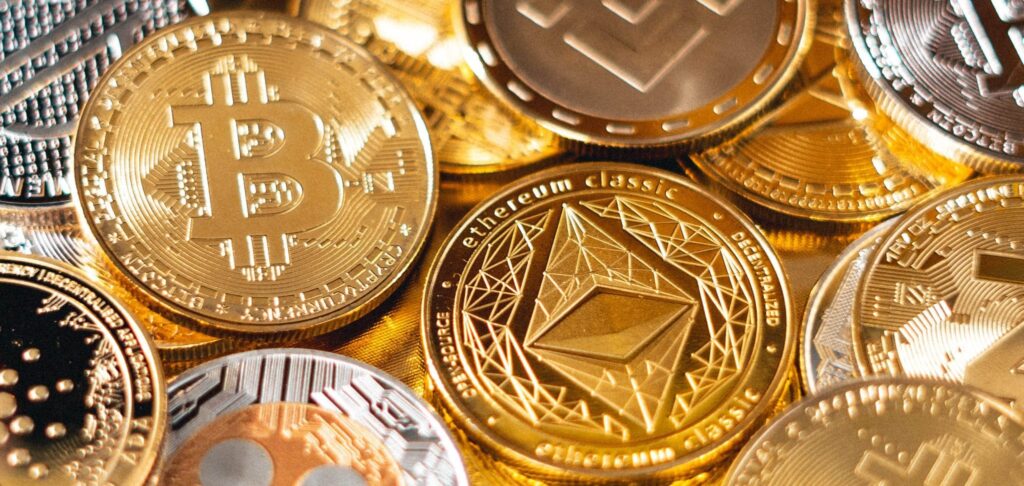
The way money plays a role in everyday life is constantly changing, especially with the rise of crypto currencies. Those who know quite a bit about it are Wilhelm Roth (CEO of Icoinic Capital), the Amsterdam-based crypto investor, and Jonas Gross (Digital Euro Association). A look with the gentlemen at the new money: crypto.Text: Patrick Stoffer
Image: Icoinic Capital
Journalist Hans Niewenhuis also spoke with the gentlemen. The concept of money began long ago with barter in food, goods and services. Then they used gold and silver, paper money linked to the gold standard and finally paper money with no relation to the price of gold. We still use that money today. Roth: "What is clear, though, is that this will increasingly move into digital money." Gross: "Monetary systems have never beenmore exciting than they are today. People are paying more and more digitally, cash is steadily declining, and not just because of COVID. New technical capabilities can make digital payments safer, easier and cheaper." According to Roth, the transition to digital money in Europe will not present too many difficulties. "When you open your banking app you already see digital money, so the transition is underway. The next step will be for the Central Bank to digitize its own euro capital in the form of CBDCs (Central Bank Digital Currencies), based on blockchain technology. Essentially, this is about cryptographic security, with the goal of preventing money laundering. The ECB will link its euro reserves to a digital euro currency, connecting it directly to citizens. This will deprive commercial banks of many of their functions." Gross: "These digital euro coins are very efficient in transactions with foreign countries, which are very complicated now. There are still all kinds of banks and other organizations involved, all using different data formats. Blockchains greatly simplify these intermediate steps, and standardize data exchange."
Roth: "Data encryption offers protection against hostile forces who want to launder their black money through the euro and use it for criminal activities. Citizens won't notice much of the digital transition, by the way. Their credit cards and apps will continue to work just as they are used to, only cheaper probably." An interesting question is whether physical money will remain in circulation. Roth expects a modest amount will be kept for older people, or for worst-case scenarios. "Like gold reserves, so that there is at least something that can serve as a replacement for when the digital system fails." Paper money also has its value for privacy reasons, of course. That's why Gross is a fan of it: "I hope paper money lasts as long as possible! No other means of payment provides so much privacy.".Photo: Wilhelm Roth, Icoinic Capital
It will certainly take a long time to complete the transition, especially because of the legal and regulatory implications. It will take at least years to introduce CBDCs as the new identity of our money. That seems slow, but of course the transition must be done with extreme caution. Roth: "Better safe than sorry..." Gross: "It is essential that people continue to trust the financial system. There should be no confusion."
El Salvador recently launched a famous project, introducing bitcoins as an official means of payment. Is that experiment viable? Roth: "It's an interesting test case for how cryptographic technology can be used for payments, but in Europe I don't expect it to happen soon. Security will become another problem in El Salvador, and it will have an impact on society and economic stability. A good reason why surveillance in Europe is so strict." Gross said the interest in El Salvador in using crypto-currencies as legal tender stems from economic and social factors, such as the large number of people without bank accounts, and the high transaction costs for transfers through banks. In addition to innovative and technological advances, Roth and Gross see crypto-currencies as a promising investment vehicle. Gross: "I increasingly see crypto currencies as digital gold, and expect the prices to rise in the longer term. Personally, I'd rather keep my bitcoins in my portfolio than sell them, because I'm optimistic about the future." Roth, who manages a crypto mutual fund, agrees: "Investing is through euros, of course. Investors buy cryptos with euros, we invest them through the crypto exchanges, and when investors sell them again they get euros in return. We are working hard to make the Netherlands the center of the new financial world."
© 2024 MASTERS EXPO. All rights reserved.